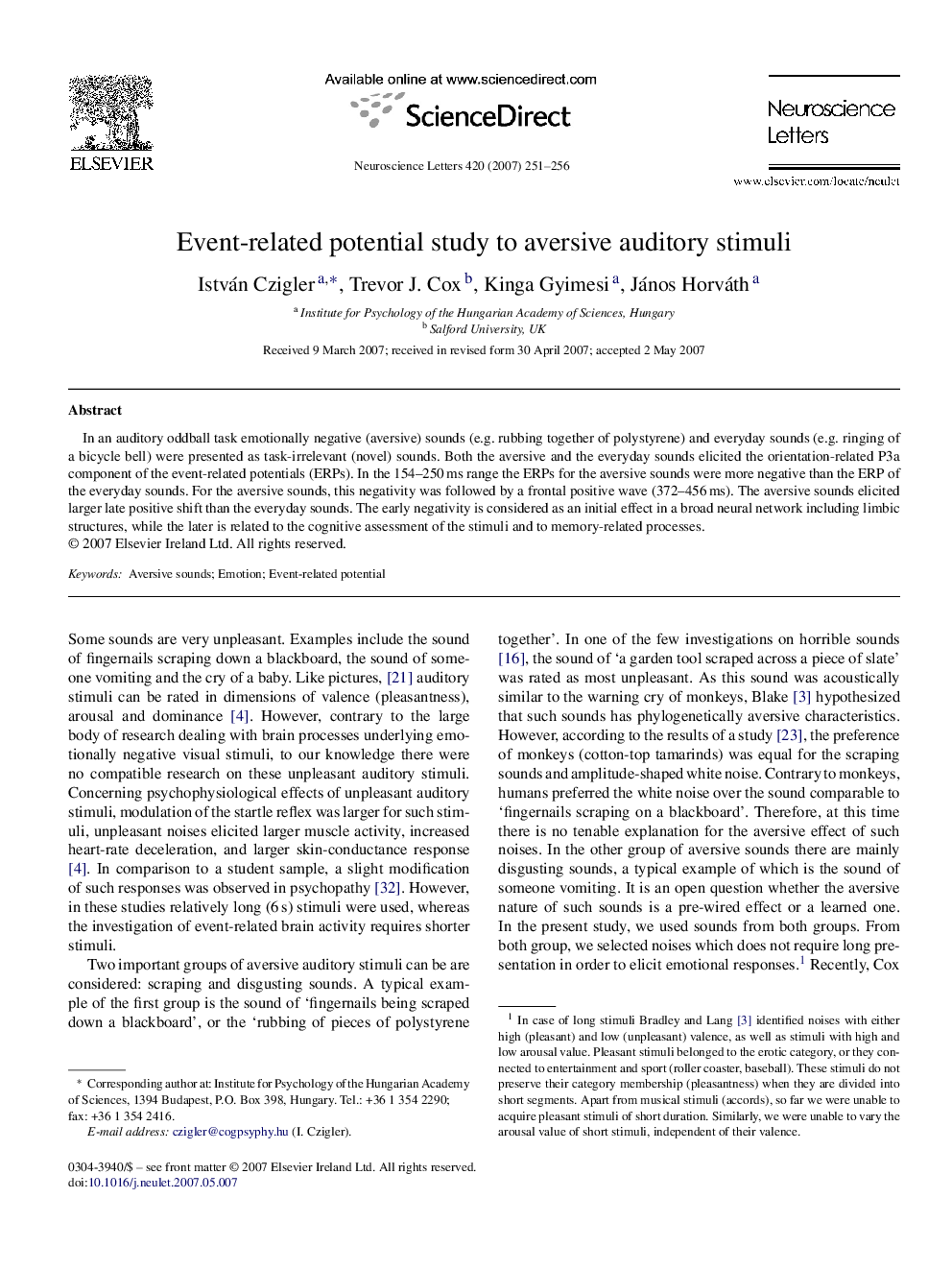| Article ID | Journal | Published Year | Pages | File Type |
|---|---|---|---|---|
| 4349178 | Neuroscience Letters | 2007 | 6 Pages |
In an auditory oddball task emotionally negative (aversive) sounds (e.g. rubbing together of polystyrene) and everyday sounds (e.g. ringing of a bicycle bell) were presented as task-irrelevant (novel) sounds. Both the aversive and the everyday sounds elicited the orientation-related P3a component of the event-related potentials (ERPs). In the 154–250 ms range the ERPs for the aversive sounds were more negative than the ERP of the everyday sounds. For the aversive sounds, this negativity was followed by a frontal positive wave (372–456 ms). The aversive sounds elicited larger late positive shift than the everyday sounds. The early negativity is considered as an initial effect in a broad neural network including limbic structures, while the later is related to the cognitive assessment of the stimuli and to memory-related processes.
